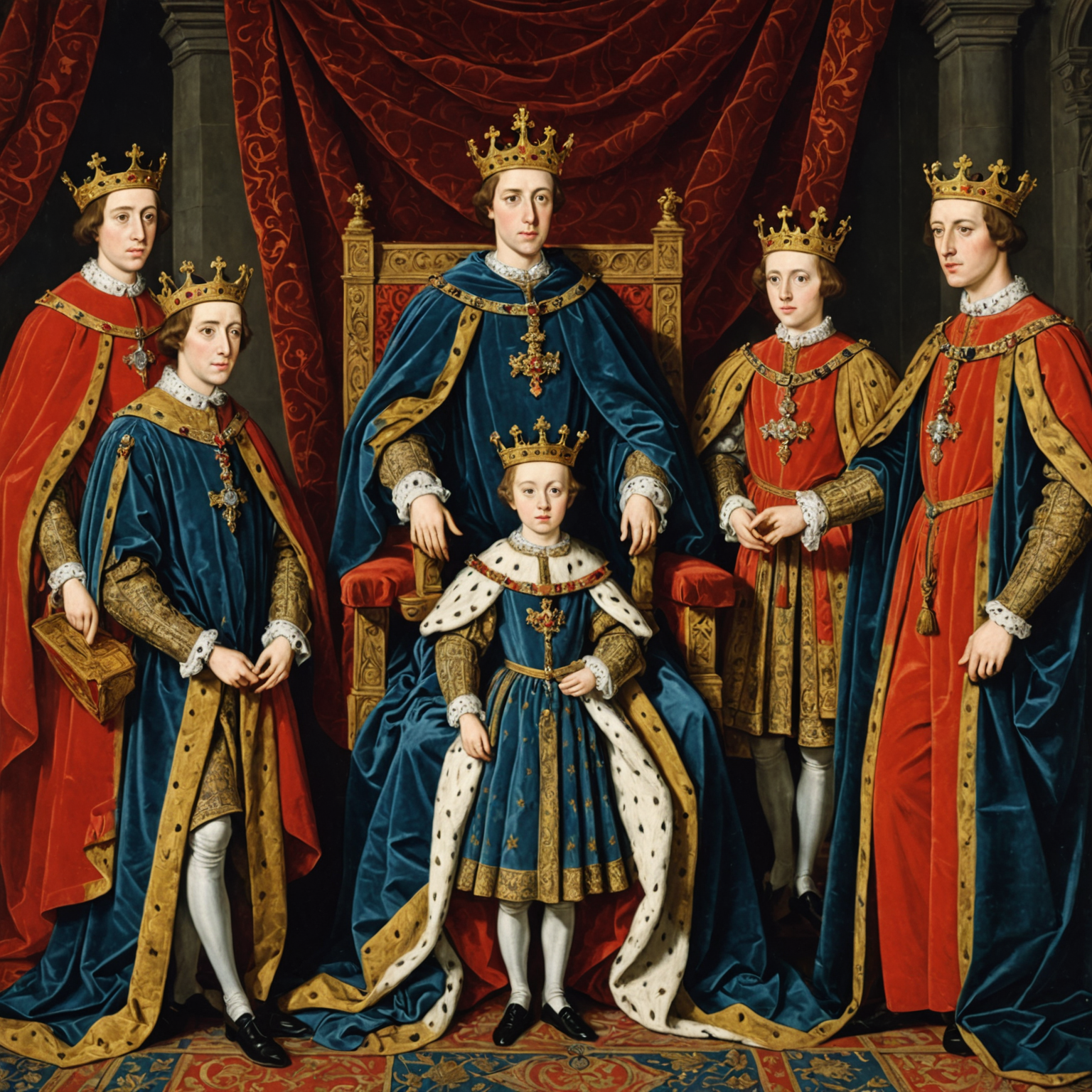The Youngest Ruler in History: Henry VI and Other Child Monarchs
 Henry VI’s coronation as King of England and France at just nine months old — the youngest ruler in English history.
Henry VI’s coronation as King of England and France at just nine months old — the youngest ruler in English history.
When Power Comes with a Pacifier
By Peter Teoh, Science Writer
Imagine being crowned as a king before you can even walk or talk. Sounds impossible, right? Yet, in history, this actually happened. The youngest ruler ever crowned was Henry VI of England, who became king when he was only about nine months old. This article dives into the fascinating story of Henry VI and other child monarchs, exploring how they ruled and what challenges they faced.
Who Was Henry VI?
Henry VI was born on December 6, 1421, to King Henry V and Catherine of Valois. When his father died in 1422, Henry was just an infant—less than a year old—but he immediately inherited the throne of England. Even more astonishing, he was also declared King of France later that same year, following the death of his grandfather, King Charles VI of France. This made him not only the youngest king in English history but also a monarch of two powerful countries.
How Could a Baby Rule?
Of course, a baby can’t make decisions or lead armies. So, when Henry VI became king, the real power was held by a group called the regency council. This council included his uncles and important nobles, who ruled in his name until he was old enough. His uncles, Humphrey, Duke of Gloucester, and John, Duke of Bedford, played key roles as regents managing England and France, respectively.
The Challenges of a Child Monarch
Being a king at such a young age came with huge problems. Without a strong adult king, England and France experienced political instability. Nobles fought for control, and the country was involved in the Wars of the Roses—a series of battles between two royal families, the Lancasters (Henry’s family) and the Yorks. Unfortunately, Henry VI struggled with mental health issues later in life and was twice removed from the throne before his death in the Tower of London.
Other Remarkable Child Rulers
Henry VI isn’t the only child monarch in history. Here are a few others who ruled at very young ages:
-
Edward VI of England became king at nine years old after the death of his father, Henry VIII. His reign was marked by religious change and political unrest, though real power was held by a regency council.
-
King Sobhuza II of Swaziland became king at just one year old in 1899 and ruled for over 80 years, leading his country through significant changes, including independence from British rule.
-
Tutankhamun, the Boy King of Ancient Egypt, ascended the throne at about nine years old and is famous for reversing religious reforms and restoring traditional Egyptian beliefs.
Why Study Child Monarchs?
Looking at young rulers like Henry VI helps us understand how power, politics, and responsibility worked in history. It also shows how societies coped when kings or queens were too young to rule. These stories reveal the complex balance between childhood innocence and the heavy weight of leadership.
Side Notes:
- The Wars of the Roses was a conflict between two branches of the royal family, lasting over 30 years, greatly influenced by Henry VI’s weak reign.
- Regency councils were common when monarchs were children. These were groups of adults who ruled temporarily.
- Despite his tragic end, Henry VI was known for supporting education and religion.
Trending Sidebar: Kids Who Changed History
- Malala Yousafzai — Nobel Peace Prize winner for advocating girls’ education.
- Joan of Arc — Led French armies as a teenager.
- Louis XIV of France — Became king at age 4 and ruled for over 70 years.
Understanding the story of Henry VI and other child monarchs shows us that history isn’t just about adults making decisions — sometimes, even babies have shaped the fate of nations.
Leave a comment